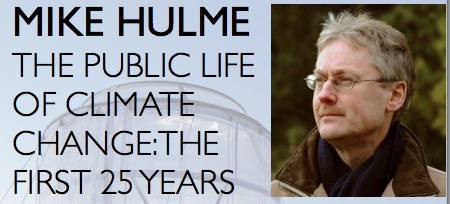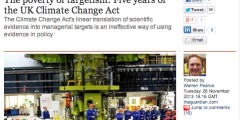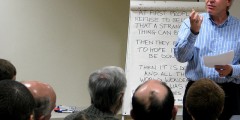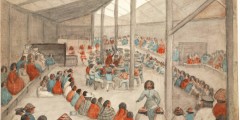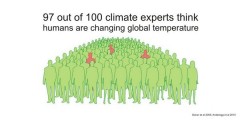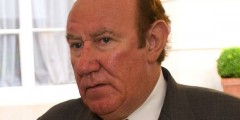Blogs, publics and controversies: climate change lectures in February
January 14, 2014
Time to unveil three four FIVE! exciting climate change lectures hosted by Making Science Public in February. Superb speakers examining different perspectives on one of the defining issues of modern public life. All are welcome to these lectures, all held on University Park campus. Thursday, February 6th: 1-2pm, Law & Social Sciences (West Wing), A100 Amelia Sharman …
Making science public: The science and silence conundrum
December 26, 2013
The issue of science and advocacy is a complex topic and has led to heated discussions amongst scientists, science communicators and commentators of different persuasions, especially this year it seems. There was first a flurry of debate provoked, in July this year, by an article written by Tamsin Edwards who argued that climate scientists should …
Climate change targetism: scientific numbers, managerial policy
November 27, 2013
It is five years since the Climate Change Act was given Royal Assent. This groundbreaking piece of legislation provided a huge boost to environmental campaigners who had long campaigned for government to make such a move. It also denoted a key stage in David Cameron’s ‘detoxification’ strategy of the Conservative Party while in opposition, as …
Global science, local perspectives – how does climate change fit into policy priorities?
October 17, 2013
I present here a synopsis of a lecture I gave yesterday for year 3 undergraduates on our Climate, Science and Society module at University of Nottingham. The session was two hours long, which is rather a long time to listen to one person. So to ensure an engaged audience, I gave around an hour and …
Just one number: has the IPCC changed its supply of evidence?
September 27, 2013
As I have researched online climate scepticism over the last year, its become clear that climate sensitivity has been one of the biggest topics for discussion. This is perhaps one of the easier parts of climate science to understand. Put simply, sensitivity measures the amount by which the Earth’s temperature increases when atmospheric carbon dioxide …
Consensus on climate change: Tracing the contours of a debate
August 23, 2013
Soon the new IPCC report on climate change will be published (a leaked version is already circulating). This will probably generate a lot of talk about what one may call the four Cs: Consensus, certainty, confidence and credibility (let alone the other two Cs: climate and change). The discussion about consensus is already in full …
An accurately informed public is necessary for climate policy
July 29, 2013
This is a guest essay by Dana Nuccitelli Last week, the Making Science Public blog published a guest post by Ben Pile, What’s behind the battle of received wisdoms?, which focused on Andrew Neil’s interview with Ed Davey on BBC Sunday Politics and my articles at The Guardian discussing the scientific errors Neil made on …
What’s behind the battle of received wisdoms?
July 23, 2013
This is a guest essay by Ben Pile, a writer for Spiked Online and his own blog Climate Resistance. There is a response by Dana Nuccitelli from the Guardian’s Climate Consensus blog here. Andrew Neil’s interview with Ed Davey on the Sunday Politics show last week caused an eruption of comment. For sceptics, it was a refreshing …
Public understanding of climate change: The deficit fallacy
April 7, 2013
At the end of February the House of Commons Science and Technology Select Committee launched an inquiry into public understanding of climate change and its implications for policy. The STSC asks for written submissions on various questions, such as: What is the current state of public understanding of what is meant by climate change? How …
Are they really climate deniers? Closing down debate in science and politics.
March 9, 2013
Just had an interesting back and forth with Vanessa Heggie about ‘what to call climate deniers/sceptics’? At the bottom of her excellent post on ‘how to debate with sceptics’, Vanessa wonders whether ‘denier‘ or ‘sceptic‘ is the right word to use around climate change. This was a handy reminder that, although I read stuff on …

